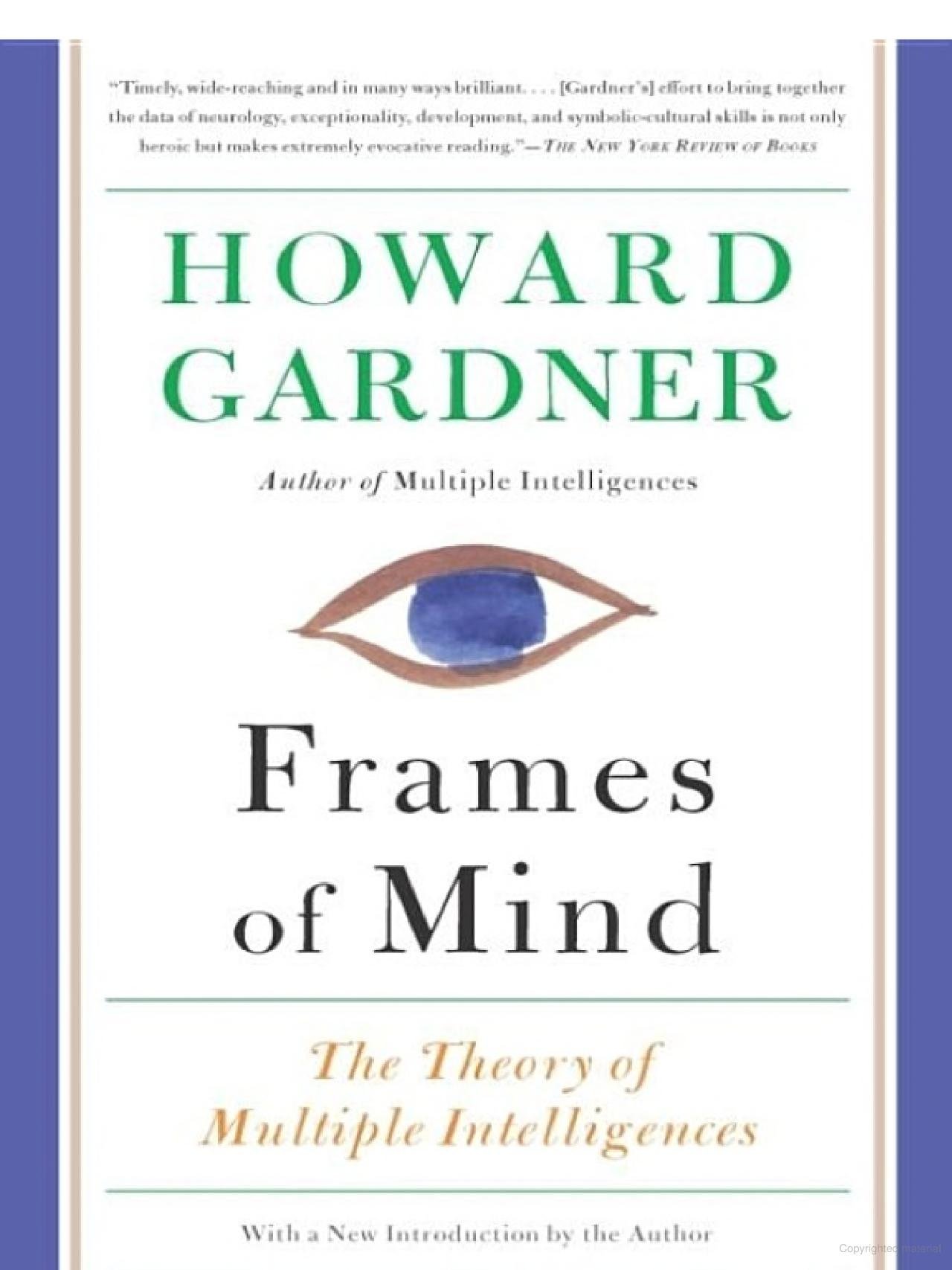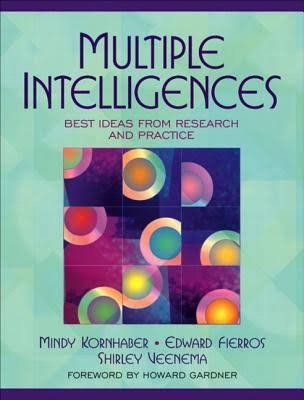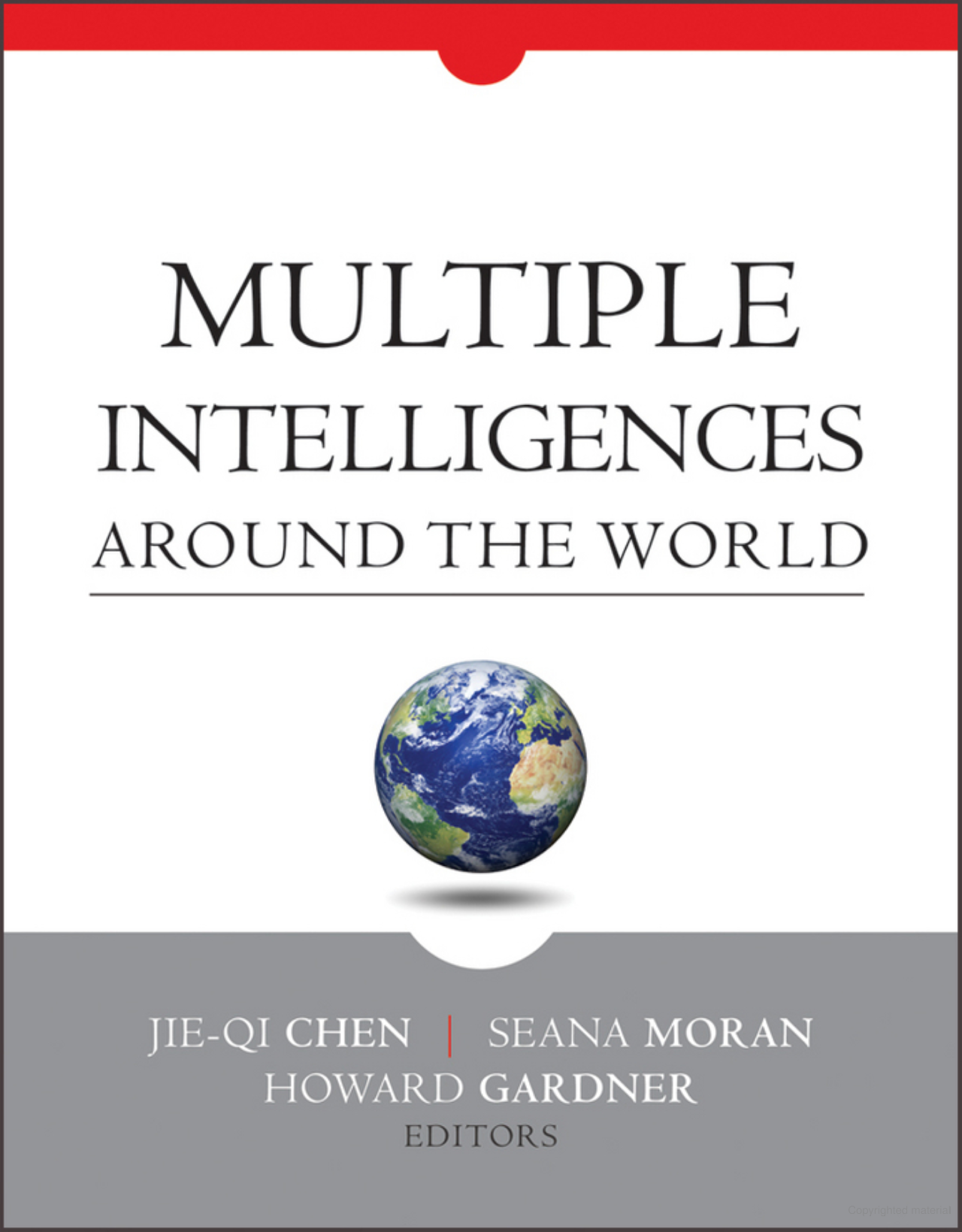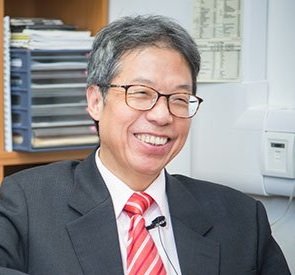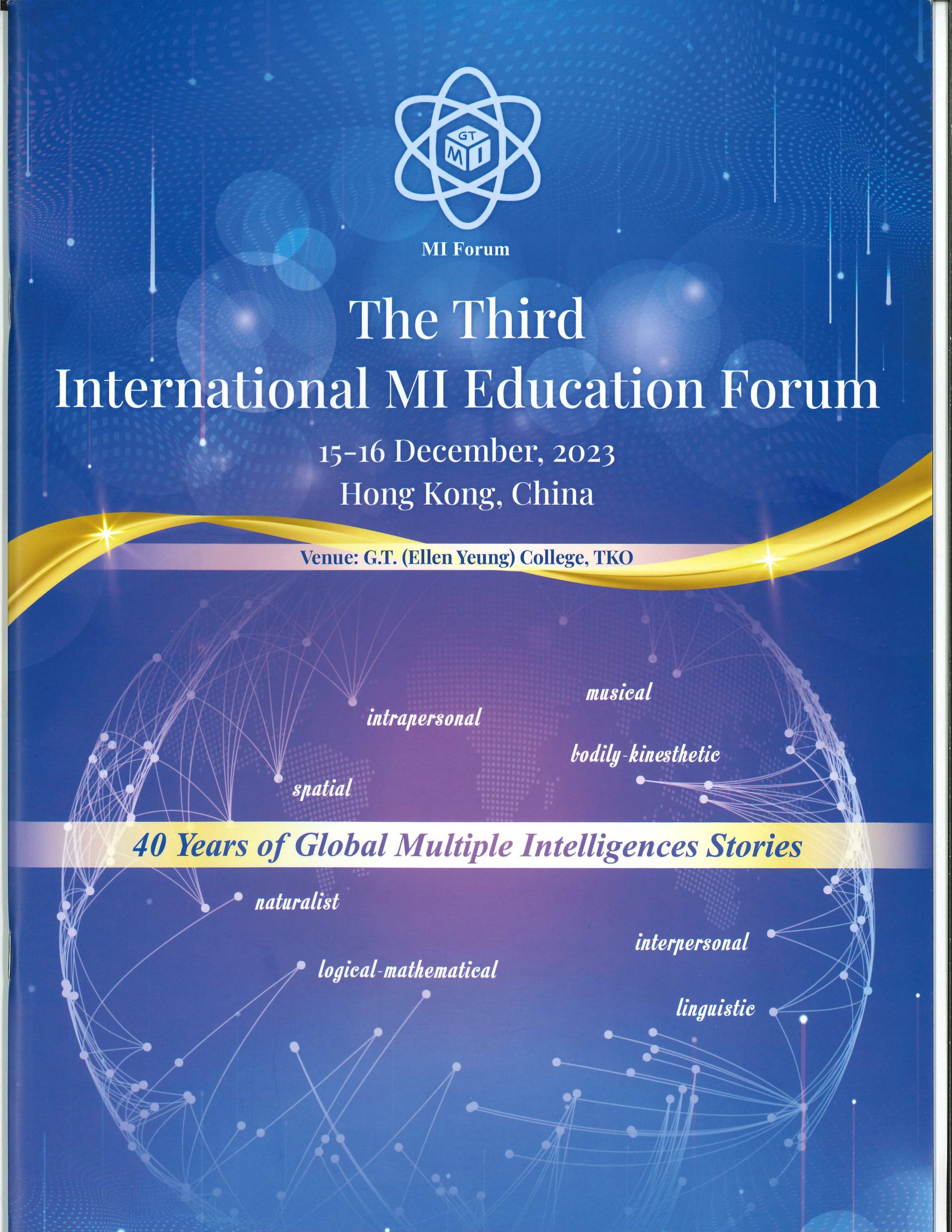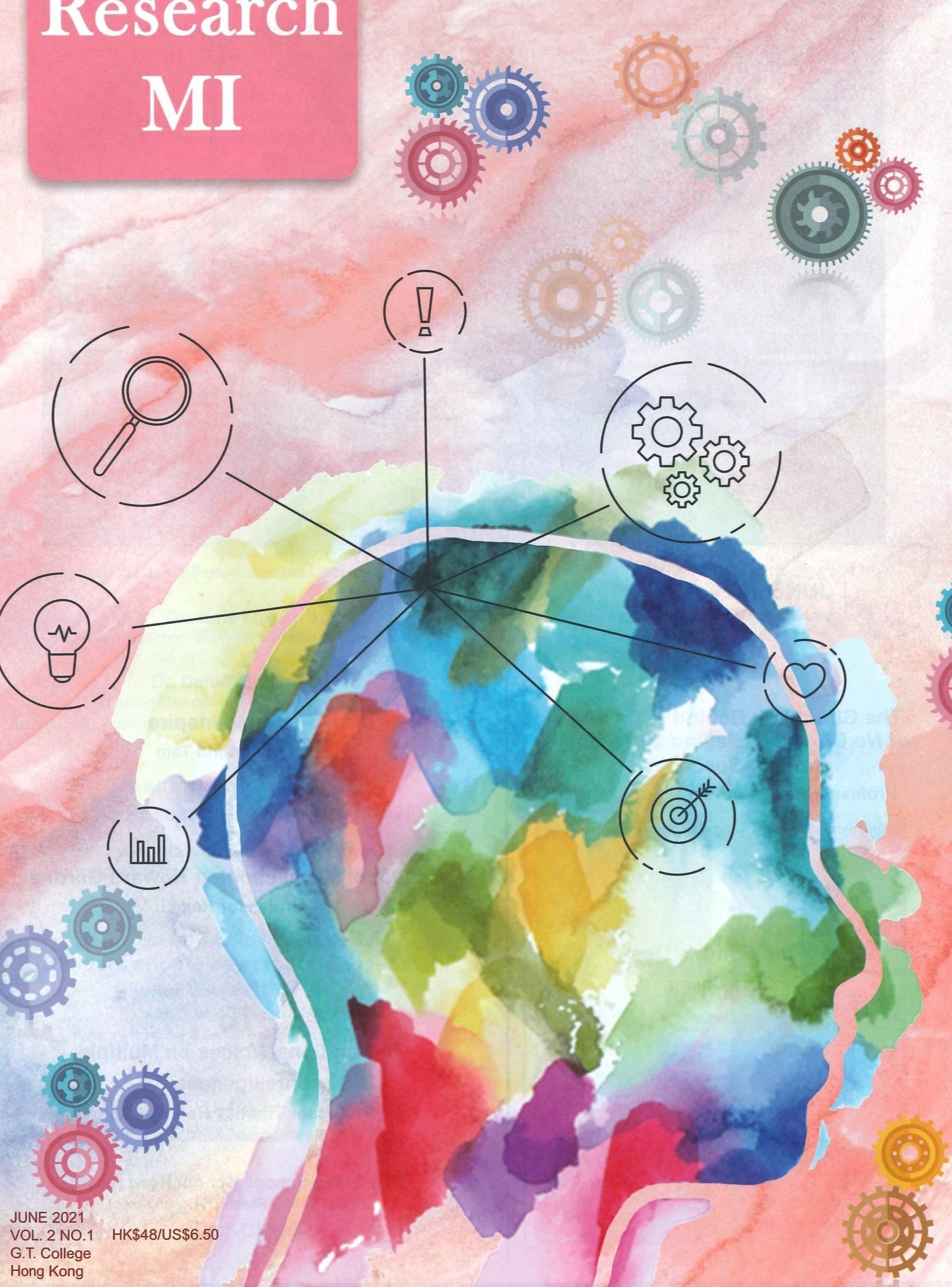By Howard Gardner
1983
As introduced in Frames of Mind, MI theory was initially a social science synthesis, with some brain and genetics information included. It was written for the general reader, not for “educators” or “educationalists”—but those in education were the most interested audience—along with the general educated public. The book was widely reviewed, mostly favorably.
Critics
Psychologists, particularly psychometricians, have never liked the theory—they have a vested interest in IQ testing, and many prefer accounts that claim the high heritability of IQ, and, accordingly, of intelligence. IQ is basically used to rank individuals, not to help them. Scholars from other disciplinary backgrounds and most other individuals who know about the theory don’t embrace such a strong critique.
Entering the Vernacular
Especially after Daniel Goleman wrote about “Emotional Intelligence” in 1995, it’s now common to speak about EQ, and to coin phrases like “financial intelligence,” “athletic smarts,” etc. Even people who still adhere to the aforementioned IQ (or“g”) view, often implicitly draw on more pluralistic views. What literary critics or novelists judge as “intelligent” is not what a lawyer, or a mathematician, or an orchestral conductor would value.
Post 1983
After writing Frames of Mind, I largely moved on to other topics in my research and writing. To be sure, I took note of what was happening with respect to the MI enterprise and I tried to be a constructive force. I supported educators, museum curators, theme park architects, and game inventors who wanted to carry on work in an MI spirit. I was in regular exchanges with Patricia Bolanos, creator of the Indianapolis Key Learning Community, and Tom Hoerr (pictured below), long-time director of the St Louis New City School. And in a several cases, my colleagues and I at Harvard Project Zero collaborated with educators who wanted to refashion education in an MI vein. (See forthcoming The Essential Howard Gardner on Education, Teachers College Press, 2024.)
In 2003, Mindy Kornhaber, Edward Fierros, and Shirley Veenema published their findings emanating from studies of 40 American schools in Multiple Intelligences: Best Ideas from Research and Practice.
In 2009, Jie-Qi Chen, Seana Moran, and I published a book called Multiple Intelligences Around the World. In this collection, 42 writers, from 15 different countries, on five continents described their efforts—largely educational—to use MI ideas in schools and other settings.
Various individuals created MI tests—Branton Shearer being by far the most ambitious, with his MIDAS battery, used in educational settings in many countries. Branton also sought to find brain evidence in support of MI theory—but his efforts were rarely addressed or critiqued by the neuroscientific community.
Other colleagues took the opportunity to speak and write about MI—prominent among them have been Thomas Armstrong, Jie-Qi Chen, Tom Hoerr, and Mindy Kornhaber.
(Pictured above, left to right: Thomas Armstrong, Jie-Qi Chen, Mindy Kornhaber, Branton Shearer.)
A few scholars devoted considerable efforts to critiquing MI—philosopher, John White, and psychologist, Lynn Waterhouse, being perhaps the most prominent. There is also a 2006 book Howard Gardner Under Fire, edited by Jeffrey Schaler, in which 13 scholars critique the theory and I respond to their critiques.
Fate of MI in different sites/soils
Interestingly, so far as I can ascertain, scholars and educators in Western Europe (e.g. Britain, France, Germany) have had little interest in the theory, or in its educational implications. I think that scholars/educators in those societies believe that they have figured out what intelligence is, how to measure it, and how to craft educational trajectories to serve students with different IQ’s—for example, different pre-vocational tracks.
Also, and importantly, educators and researchers in these Western democratic societies have long been interested in progressive ideas in education—including hands-on learning, active student participation, respect for different talents—and so they had less need to inject MI words and practices into their educational discourse. One prominent example would be the outstanding pre-schools of Reggio Emilia in Italy, which have long recognized “the hundred languages of children.”
In contrast, with the passage of time, MI ideas seem to have found more receptive soil in parts of Asia—China, Korea, Thailand, and India; and also the Middle East—Iran. Progressive ideas make room for learners who do not have standard scholastic intelligence profiles. These societies may also embrace foolish ideas—like inferring intelligence profiles from examination of fingerprints.
At least so far, Japan has been a notable exception. It is the least psychological, most sociological modern society, and attention to individual differences is seen as undesirable. To be sure, there has long been a Japan MI society (link)—and I have treasured relations with several of its members.
MI in 2024
In the past few decades, I have not devoted significant energies to the MI enterprise. I have considered new intelligences; visited institutions that describe themselves as MI, or Howard Gardner-inspired schools; and responded to a steady stream of letters, inquiries, bouquets, and occasional brickbats. And I maintain an active website multipleintelligencesoasis.org to which my colleague Shinri Furuzawa and I regularly direct inquirers and on which we occasionally post blogs.
With his impressive and extensive enterprises: publications, conferences, a leading school for Gifted students in Hong Kong, Rex Li has stimulated me to think about the future of MI—especially after I depart from the scene. (Pictured above: Rex Li, program for the International MI Education Forum - December 2023, Research MI magazine - Volume 2.)
In no way do I compare myself to Sigmund Freud!—but the poet W. H. Auden, remarked on Freud’s death that he was no longer a person, but “a whole climate of opinion.” That’s my aspiration for MI theory; not that it should be proved scientifically correct, or reduced to (or operationalized via) a test, or a functional MRI measure, or a set of gene clusters. Rather, I hope that MI ideas and practices—which now properly belong to many individuals, programs and educational entities—should open the world’s eyes to the intriguing and potentially helpful cognitive differences among individuals. I hope MI theory will influence schools, other educational institutions, and online delivery so that these entities are sensitive to these differences and nurture them constructively. This will help ensure that current and future vocations and avocations remain open, available, and welcoming to individuals with distinctive profiles—especially in an increasingly AI-dominated era. Most important, especially now, as we are well into the 21st century, I hope that intelligences will be put to positive ends—with a lot of discussion and debate about what is entailed in good work, good citizenship, the life of intelligences, if you will.
Mary Joy Abaquin, founder of Multiple Intelligences International School, Quezon City, Philippines
Surprisingly, it’s almost 30 years since my colleagues, Mihaly Csikszentmihalyi, William Damon, and I began to work on these issues; initially, as an effort to ascertain whether creativity could be mobilized to human ends; then as a study of what it means to be a good professional and a good citizen (intertwining excellence, engagement and ethics). And now, as we have worked in education, from pre-school through college, with a particular focus on what it means to think of and serve others, not just oneself—and to do so in a positive way. So formulated, I should give a shout out to Mary Joy Abaquin who, a quarter of a century ago, began to recognize individuals in the Philippines who deployed their intelligences for praiseworthy ends.
What roles might be assumed by Rex Li’s current enterprises? I see MI as a broad tent—one that welcomes individuals with that pluralistic perspective and set of concepts and tools—principally educators, but also parents, employers, and those individuals charged with designing and implementing the societies of the future. I hope that members under that tent can take into account the skills and aspirations of all individuals, and encourage them to use those profiles and those potentials for positive, defensible, and articulable ends.
To ponder
Which kinds of publications, meetings, and groups will form?
How will they evolve?
What lessons will be learned and how will they be shared?
The tent should be broad—but not so broad that it encompasses everything including the proverbial “kitchen sink.” And it matters in which soil the enterprise operates—an issue to which Rex and his colleagues are keenly sensitive. If I get some credit, fine; but it’s much more important that MI ideas and practice, as limned here, be taken seriously than that they be credited to me.



